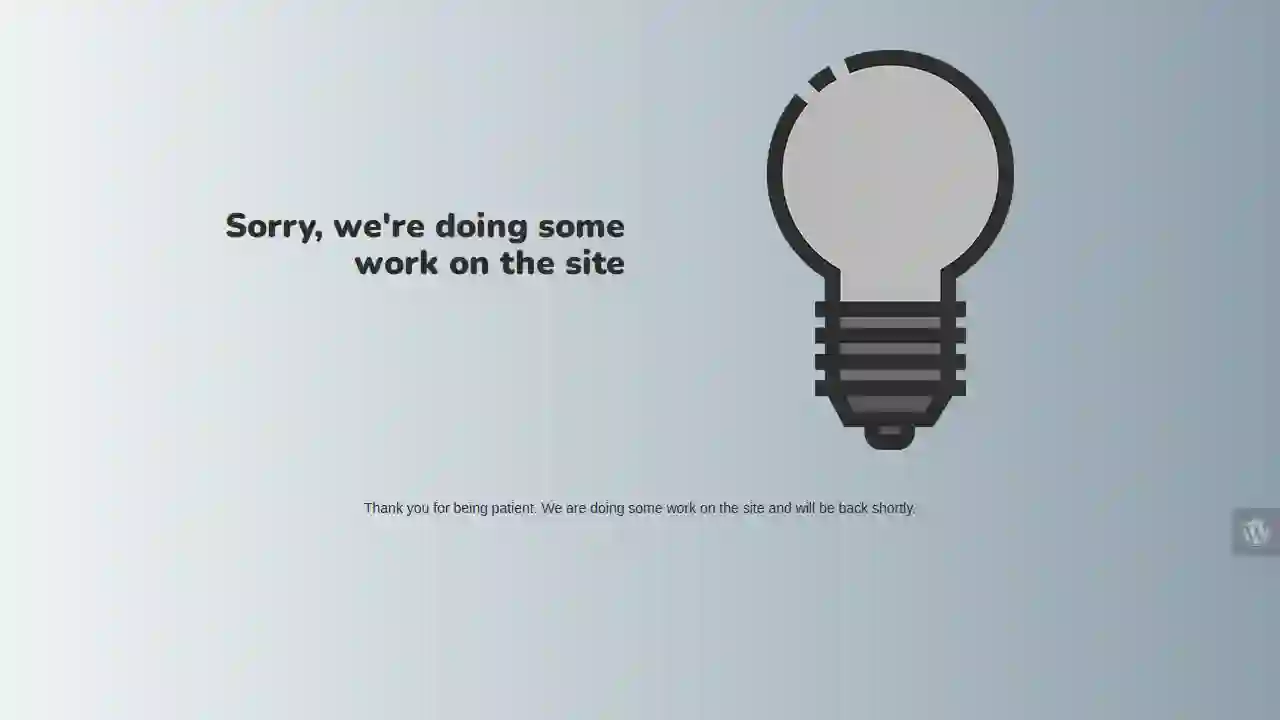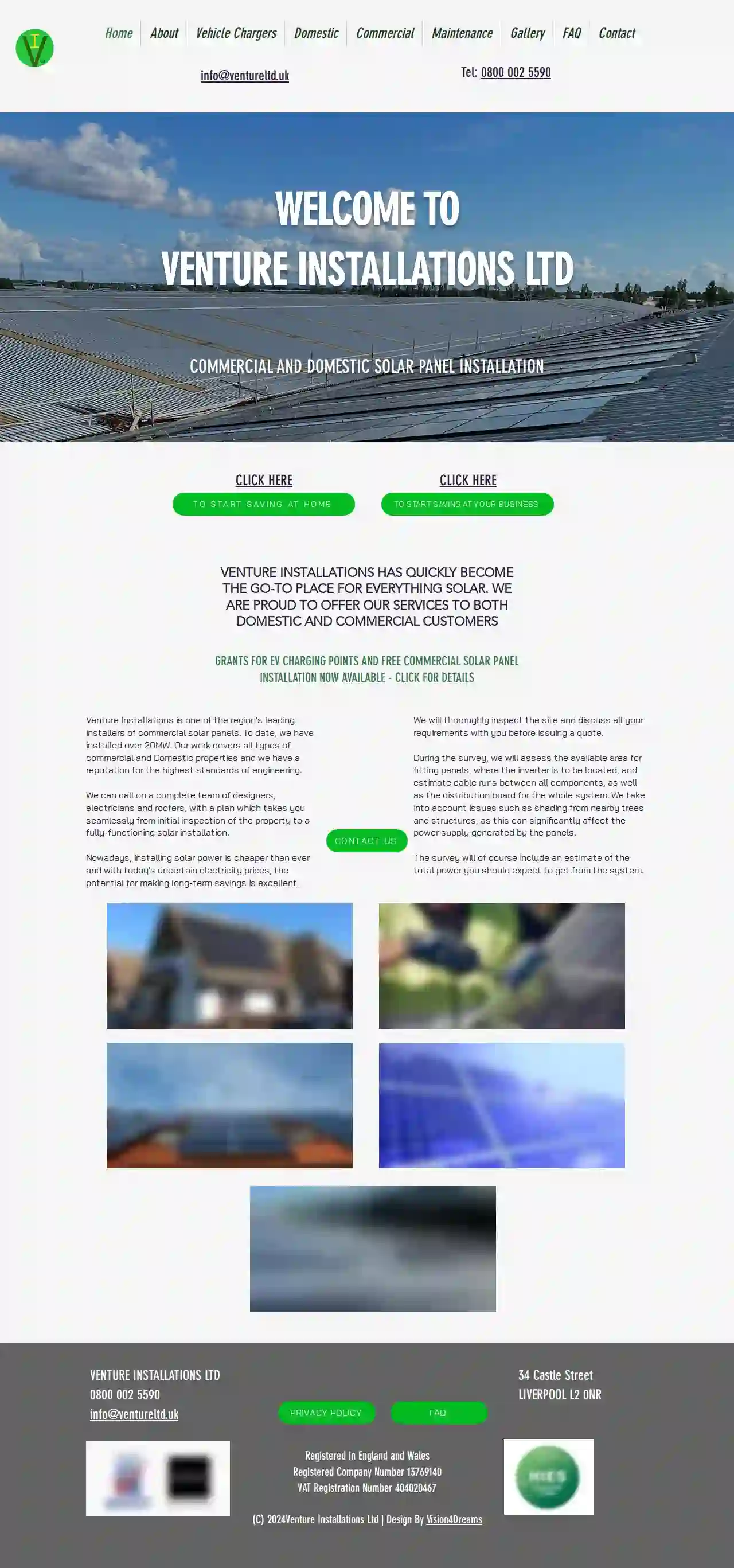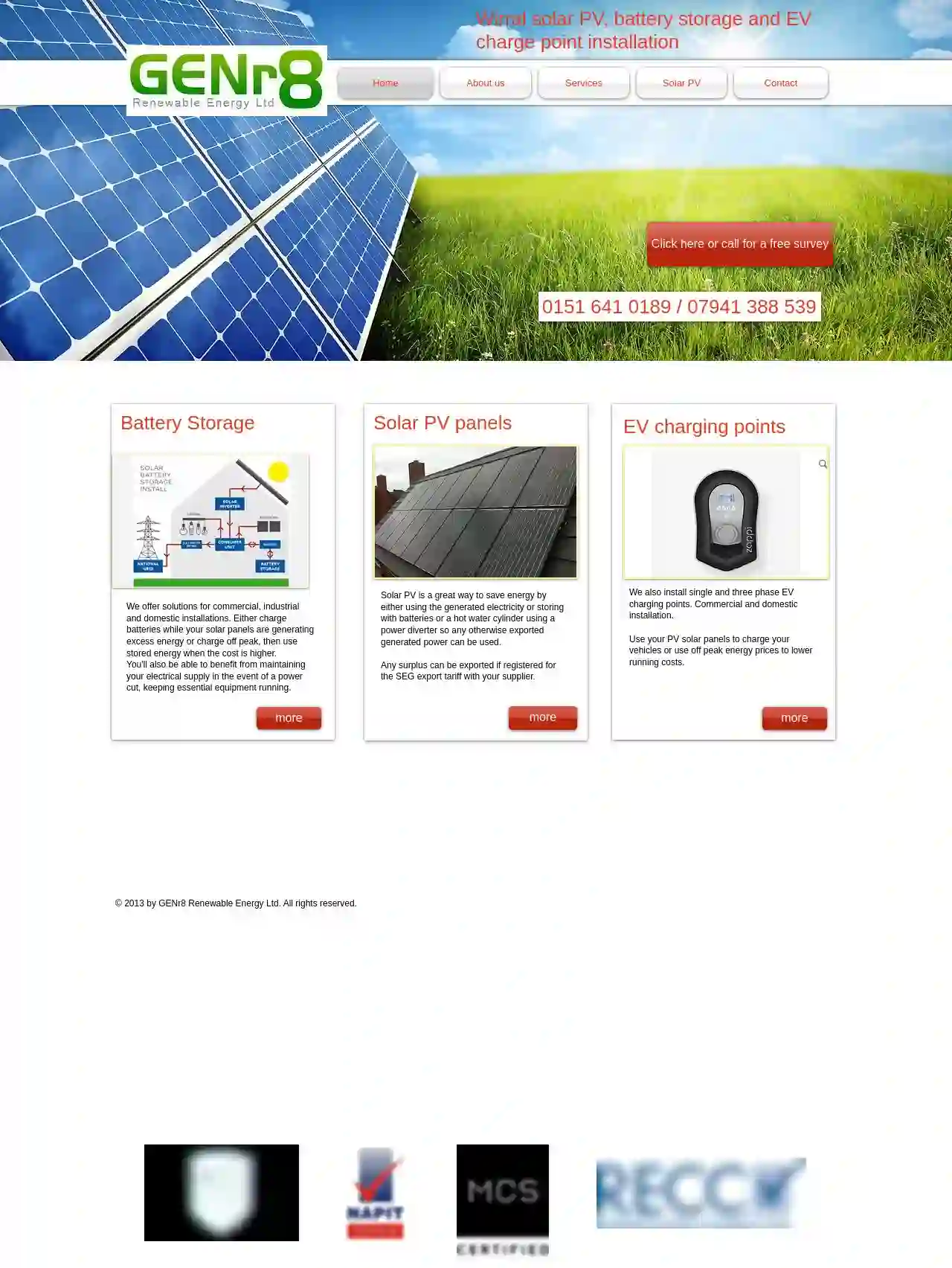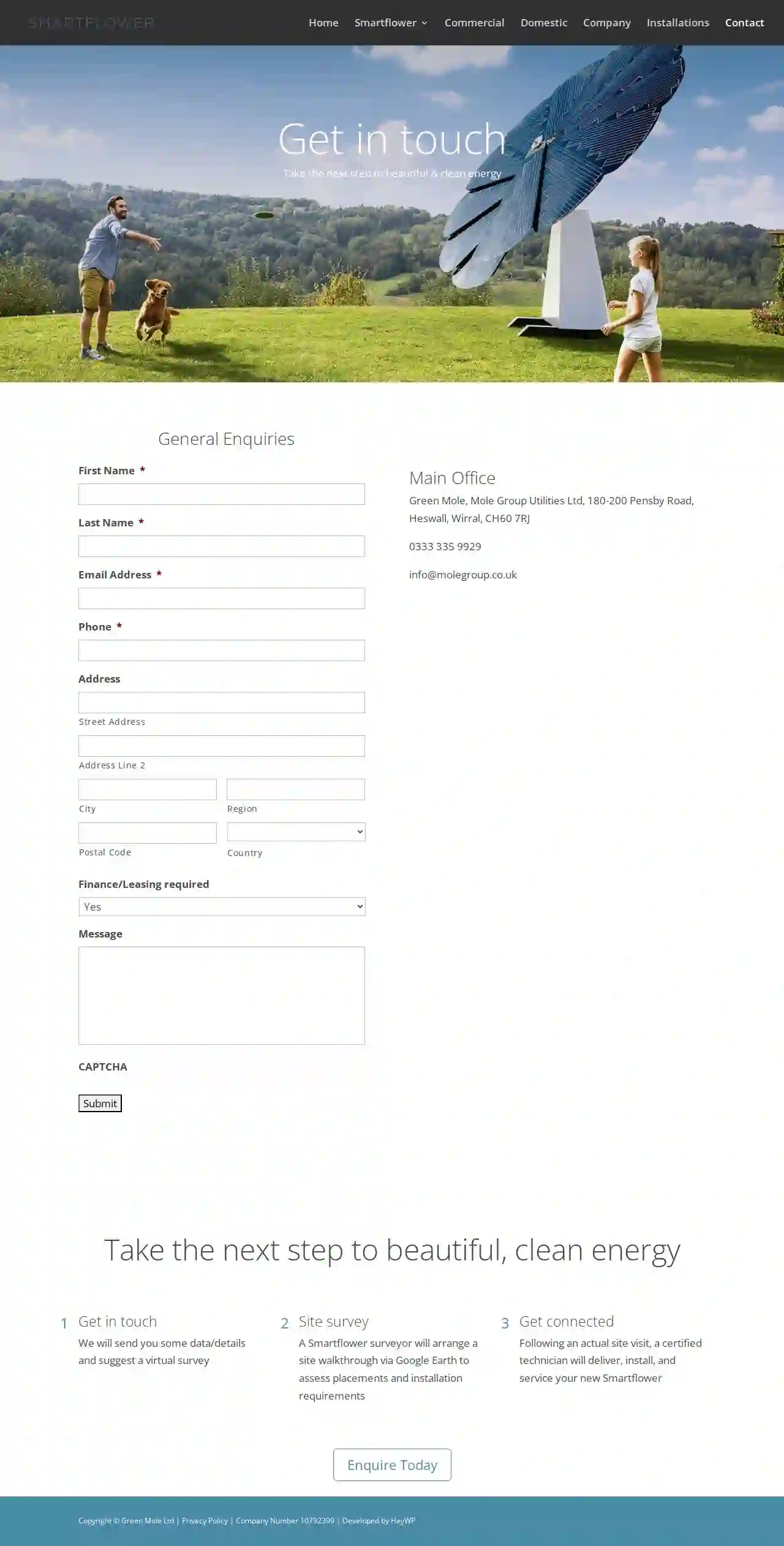Solar Panel Repair & Maintenance Westminster
Top 10 Solar Panel Service in Westminster
Receive up to 3 Solar Repair & Maintenance quotes for your project today! Compare profiles, reviews, accreditations, portfolio, etc... and choose the best service.

Renewable Alliance
523 reviewsPine Grove Enterprise Centre, Pine Grove, Crowborough, TN6 1DH, GBRenewable Alliance and its Group of companies are one of the world’s most effective suppliers of green energy solutions, working with an extensive portfolio of domestic clients and corporate organisations. Our experienced team is at the cutting edge of renewable technology in the UK offering everything from design, installation, cost effective maintenance packages and technical support for major green energy projects. We offer a full turnkey solution across multiple sectors including telecoms, power, civil engineering and renewable energy. We Care About our clients, customers, people and environment We Do Conduct business with an honest, clear and transparent approach
- Services
- Why Us?
- Accreditations
- Our Team
- Testimonials
- Gallery
Get Quote
Imperium RE
Westminster, GBImperium RE is a leading property development and investment company, dedicated to delivering high-quality residential and commercial projects. With a strong focus on customer satisfaction, we strive to build long-lasting relationships with our clients and partners. Our team of experts has extensive experience in the property industry, ensuring that every project is meticulously planned and executed to the highest standards.
- Services
- Why Us?
- Gallery
Get Quote
Applegarth Engineering
4.713 reviewsTranmere, Unit 10, 431 Corporation Road, Birkenhead, CH41 8FA, GBApplegarth Electrical is a NICEIC electrical contractor in Wirral, established in 2006. We specialise in the installation of renewable energy solutions for both commercial and domestic clients. Our team are fully trained and highly experienced in every aspect of EV charge point installation, solar panel installation and electrical design. We pride ourselves on delivering a reliable and quality service, ensuring every job is finished to the client's satisfaction. We are committed to providing the highest standards of customer care, with ongoing peace of mind available through our maintenance and breakdown service.
- Services
- Why Us?
- Accreditations
- Our Team
- Testimonials
- Gallery
Get Quote
Solarcrest
55 reviews38-42 Brunswick Hill, Macclesfield, SK10 1ET, GBSolarcrest is a company specializing in Mechanical Ventilation with Heat Recovery (MVHR) systems for new builds, refurbishments, and deep retrofit projects. They aim to provide the best possible MVHR outcome in terms of air quality, reliability, automation, and acoustics. Their services include a 3D design that perfectly fits your property, a 5-star rated managed installation, manufacturer-approved setup, handover, and ongoing aftercare. Solarcrest emphasizes the importance of designing and installing MVHR systems correctly to ensure optimal performance and longevity. They believe that MVHR is essential for modern, low-energy buildings, offering numerous health and comfort benefits in addition to energy savings. The company encourages potential clients to research the benefits of MVHR thoroughly before making a decision. Solarcrest also helps clients seal their buildings safely to ensure optimal energy efficiency.
- Services
- Why Us?
- Our Team
- Gallery
Get Quote
Venture Installations
34 Castle Street, Liverpool, L2 0NR, GBWELCOME TO VENTURE INSTALLATIONS LTD COMMERCIAL AND DOMESTIC SOLAR PANEL INSTALLATION CLICK HERE TO START SAVING AT HOME CLICK HERE TO START SAVING AT YOUR BUSINESS VENTURE INSTALLATIONS HAS QUICKLY BECOME THE GO-TO PLACE FOR EVERYTHING SOLAR. WE ARE PROUD TO OFFER OUR SERVICES TO BOTH DOMESTIC AND COMMERCIAL CUSTOMERS GRANTS FOR EV CHARGING POINTS AND FREE COMMERCIAL SOLAR PANEL INSTALLATION NOW AVAILABLE - CLICK FOR DETAILS Venture Installations is one of the region's leading installers of commercial solar panels. To date, we have installed over 20MW. Our work covers all types of commercial and Domestic properties and we have a reputation for the highest standards of engineering. We can call on a complete team of designers, electricians and roofers, with a plan which takes you seamlessly from initial inspection of the property to a fully-functioning solar installation. Nowadays, installing solar power is cheaper than ever and with today's uncertain electricity prices, the potential for making long-term savings is excellent. CONTACT US We will thoroughly inspect the site and discuss all your requirements with you before issuing a quote. During the survey, we will assess the available area for fitting panels, where the inverter is to be located, and estimate cable runs between all components, as well as the distribution board for the whole system. We take into account issues such as shading from nearby trees and structures, as this can significantly affect the power supply generated by the panels. The survey will of course include an estimate of the total power you should expect to get from the system.
- Services
- Why Us?
- Gallery
Get Quote
Meel Group - Sustainability Solutions
Meel Group – Sustainability Solutions, Macclesfield, Cheshire, Snape Rd, SK10 2NZ, GBMeel Group - Sustainability Solutions is a company that specializes in installing sustainability solutions for businesses. They offer a range of services including EV charger installation, workplace and fleet charging, residential EV charge point installation, solar panels, heat pumps, and battery solutions. With over 55 years of experience in mechanical, electrical, and heating systems, they have the knowledge and expertise to integrate renewable technology into traditional heating and plumbing systems. They are based in Cheshire and serve the surrounding counties.
- Services
- Why Us?
- Accreditations
- Testimonials
- Gallery
Get Quote
GENr8 Renewable Energy Ltd
54 reviewsWestminster, GBWirral solar PV, battery storage and EV charge point installation. We offer solutions for commercial, industrial and domestic installations. Either charge batteries while your solar panels are generating excess energy or charge off peak, then use stored energy when the cost is higher. You'll also be able to benefit from maintaining your electrical supply in the event of a power cut, keeping essential equipment running. Solar PV panels are a great way to save energy by either using the generated electricity or storing with batteries or a hot water cylinder using a power diverter so any otherwise exported generated power can be used. Any surplus can be exported if registered for the SEG export tariff with your supplier. We also install single and three phase EV charging points. Commercial and domestic installation. Use your PV solar panels to charge your vehicles or use off peak energy prices to lower running costs.
- Services
- Why Us?
- Gallery
Get Quote
Smartflower
Heswall, 180-200 Pensby Road, CH60 7RJ, GBWelcome to Smartflower, a leading provider of solar energy solutions. Our mission is to empower individuals and businesses to switch to clean energy and reduce their carbon footprint. With our innovative and easy-to-install solar panels, you can enjoy a sustainable and cost-effective source of energy. Our team of experts will work with you to assess your energy needs and provide a personalized solution. Contact us today to take the next step towards a brighter, cleaner future.
- Services
- Why Us?
- Gallery
Get Quote- Se
Sensory Energy Ltd
Westminster, GB- Services
- Why Us?
Get Quote - So
Solar Claims UK Ltd
32 reviewsWestminster, GB- Services
- Why Us?
Get Quote
Over 3,485+ Solar Companies on our platform
Our solar pros operate in Westminster & surroundings!
SolarCompaniesHub has curated and vetted the Best Solar Installers arround Westminster. Find a top & reliable business today.
Solar Panel Repair & Maintenance FAQ
- Damaged wiring
- Faulty connections
- Water intrusion
- Other insulation breaches
- Cause electric shock
- Start a fire
- Damage equipment
- Ensure proper grounding of the system
- Regularly inspect wiring for damage
- Address water leaks promptly
- Severe weather (hail, wind)
- Falling debris (trees, branches)
- Improper installation
- Neglect or lack of maintenance
- Use a Directory Like SolarCompaniesHub: We connect you with pre-screened solar repair specialists in your area.
- Check Online Reviews: Look for positive reviews on Google, Yelp, and other reputable platforms.
- Ask for Referrals: Get recommendations from friends, family, or neighbors who have had solar panel repairs done.
- Verify Credentials: Ensure the company is licensed, insured, and certified by relevant industry organizations.
- Get Multiple Quotes: Compare quotes from several companies, considering price, experience, and warranty information.
- Ask Questions: Don't hesitate to ask about their experience with similar repairs, their process, and their warranties.
- Improper Flashing: Flashing is a thin, waterproof material used to seal gaps and prevent water intrusion around penetrations in the roof, such as vents, chimneys, and solar panel mounts. If flashing is installed incorrectly, water can seep through the roof.
- Damaged Roof Shingles: If roof shingles are damaged during the installation process, it can create openings for water to enter.
- Improper Sealant Application: Sealant is used to create a watertight barrier around solar panel mounts and other roof penetrations. If the sealant is not applied correctly, it can deteriorate and allow water to leak through.
- Uses high-quality flashing and sealants
- Follows industry best practices for installation
- Has a thorough understanding of roofing systems.
What are solar panel ground faults?
Are solar panel repairs covered by warranty?
How do I find a reputable solar panel repair company?
Can solar panels cause roof leaks?
What are solar panel ground faults?
- Damaged wiring
- Faulty connections
- Water intrusion
- Other insulation breaches
- Cause electric shock
- Start a fire
- Damage equipment
- Ensure proper grounding of the system
- Regularly inspect wiring for damage
- Address water leaks promptly
Are solar panel repairs covered by warranty?
- Severe weather (hail, wind)
- Falling debris (trees, branches)
- Improper installation
- Neglect or lack of maintenance
How do I find a reputable solar panel repair company?
- Use a Directory Like SolarCompaniesHub: We connect you with pre-screened solar repair specialists in your area.
- Check Online Reviews: Look for positive reviews on Google, Yelp, and other reputable platforms.
- Ask for Referrals: Get recommendations from friends, family, or neighbors who have had solar panel repairs done.
- Verify Credentials: Ensure the company is licensed, insured, and certified by relevant industry organizations.
- Get Multiple Quotes: Compare quotes from several companies, considering price, experience, and warranty information.
- Ask Questions: Don't hesitate to ask about their experience with similar repairs, their process, and their warranties.
Can solar panels cause roof leaks?
- Improper Flashing: Flashing is a thin, waterproof material used to seal gaps and prevent water intrusion around penetrations in the roof, such as vents, chimneys, and solar panel mounts. If flashing is installed incorrectly, water can seep through the roof.
- Damaged Roof Shingles: If roof shingles are damaged during the installation process, it can create openings for water to enter.
- Improper Sealant Application: Sealant is used to create a watertight barrier around solar panel mounts and other roof penetrations. If the sealant is not applied correctly, it can deteriorate and allow water to leak through.
- Uses high-quality flashing and sealants
- Follows industry best practices for installation
- Has a thorough understanding of roofing systems.